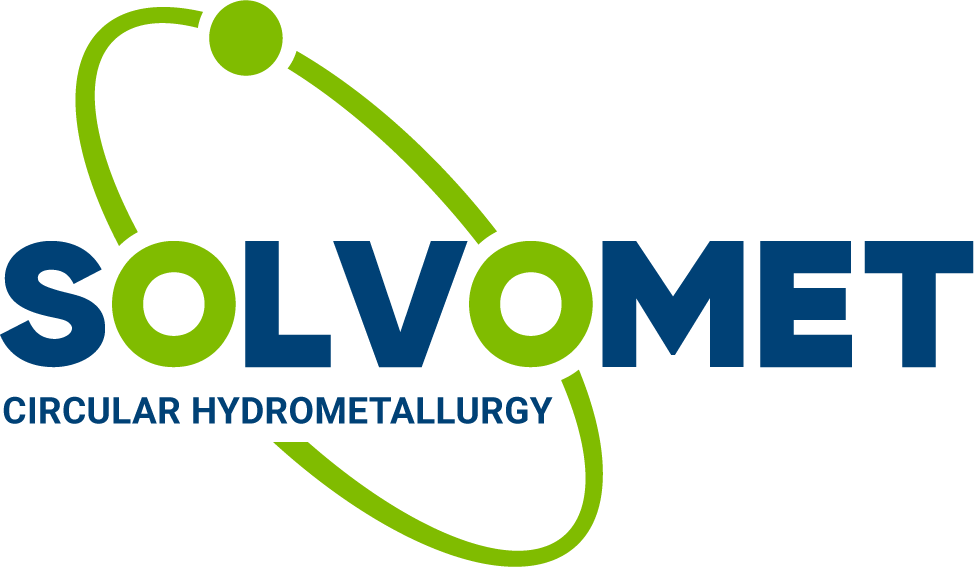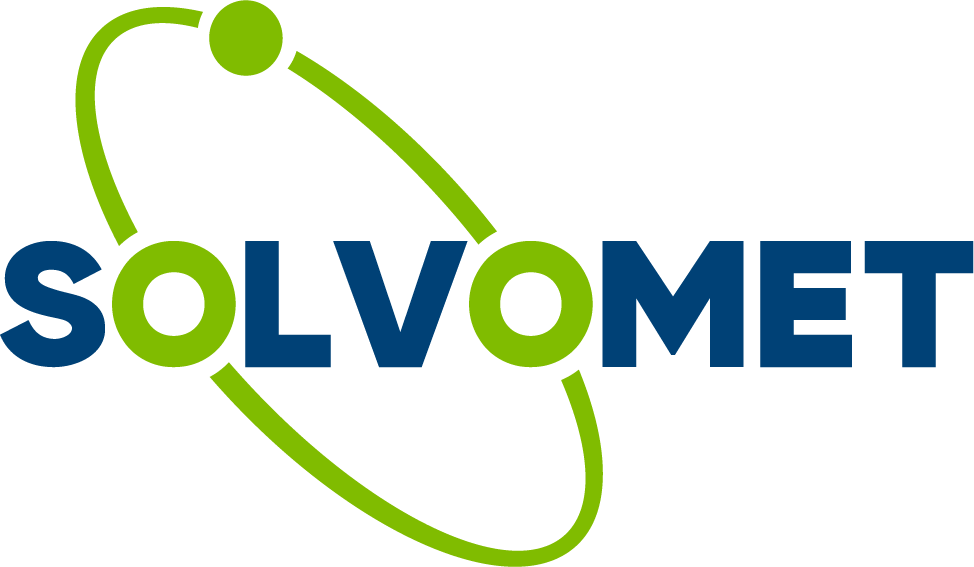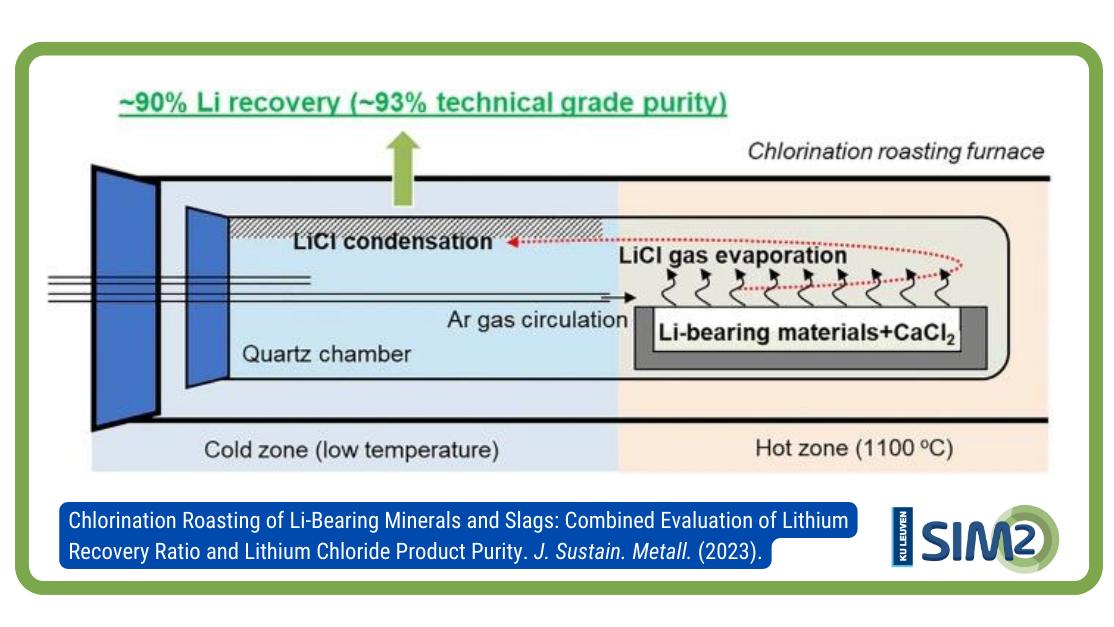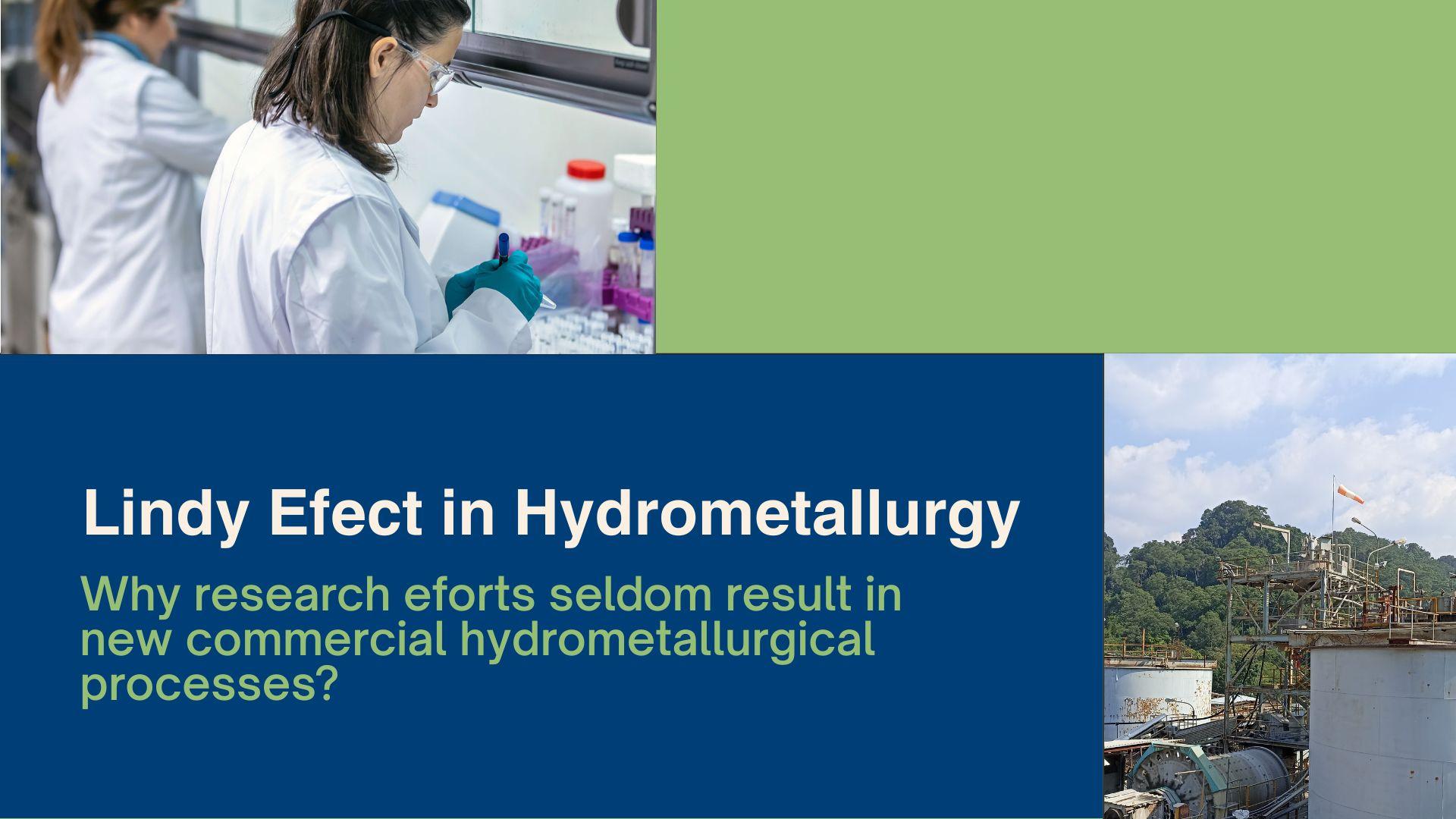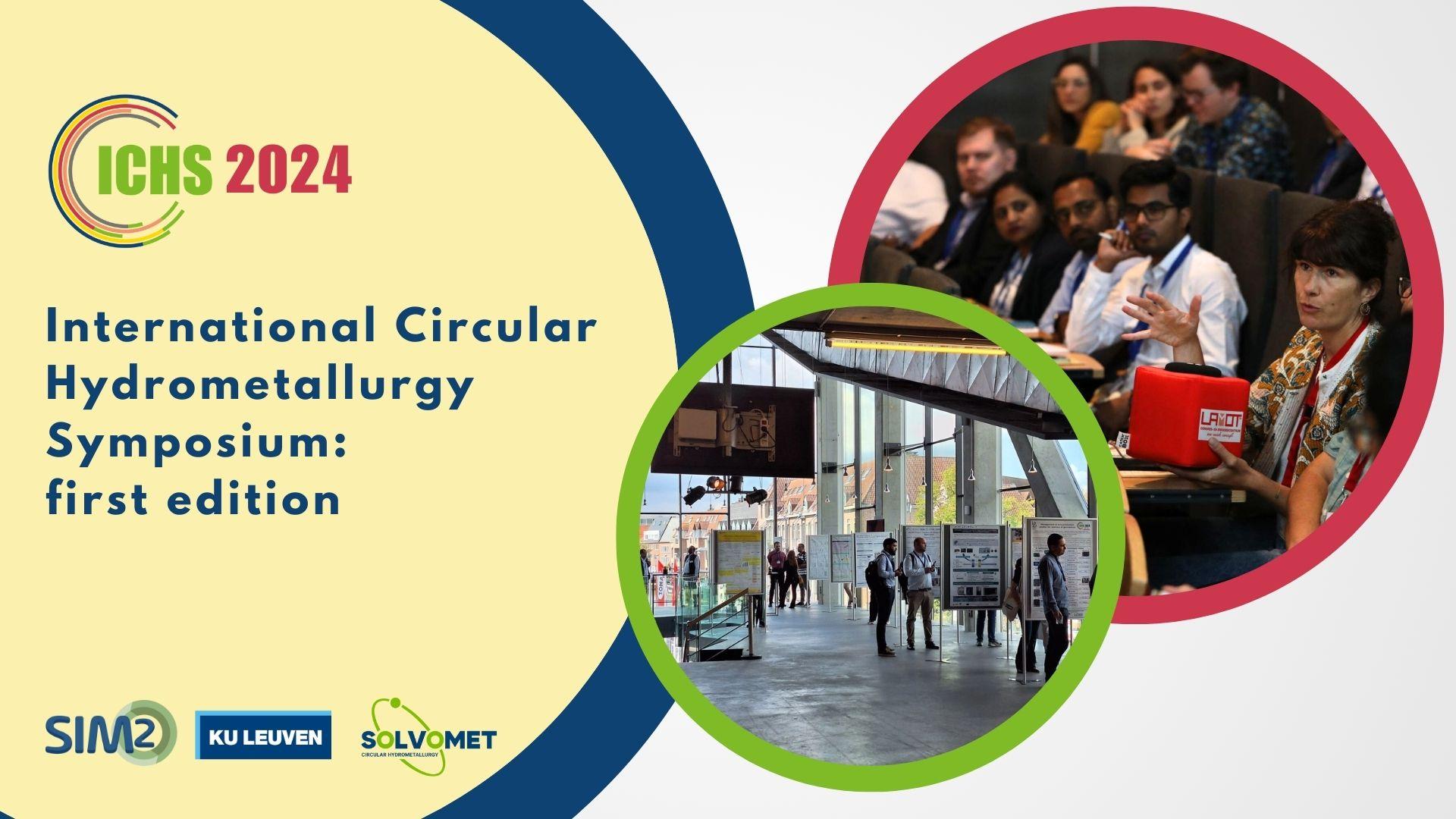How can one recycle lithium from spent Li-ion batteries (LIBs) when a pyrometallurgical route is chosen? In a new paper by HiTemp researchers of the KU Leuven Institute for Sustainable Metals and Minerals, a chlorination process was developed to do just that. As a starting material, we used the slag that is obtained when processing End-of-Life LIBs in a pyrometallurgical (smelting reduction) process
Good LiCl purity obtained
After the chlorination roasting, 90% of the available Li was extracted as a LiCl product from the LIB recycling slag. The Li recovery ratio is dependent on the Li2O content, the type of Li-containing phase and the impurities in each of the Li-containing materials.
In addition, the distribution of the main impurity elements—such as K, Na, Mn, and Fe—between the vaporized chloride gas and the solid residue after the chlorination roasting was analyzed to evaluate the purity of the obtained Li product (i.e., LiCl). The LiCl purity was measured to be 89% for the chlorination products extracted from the LIB recycling slag.
The experimental results indicate that the Li-ion battery (LIB) recycling slag shows a great potential as an alternative (secondary) Li-bearing resource for the production of high-purity, “technical-grade” LiCl (~ 90%), adopting a chlorination roasting process.
Further refining of LiCl
Finally, even in the case a pure LiCl product is obtained from the chlorination roasting process, a further refining process is required to further purify the “technical-grade” LiCl quality (e.g. 90% purity) into battery-grade quality Li products.
This was demonstrated in previous work at KU Leuven, by the SOLVOMET Group in a patented process that allows to process solid technical-grade LiCl into battery-grade LiOH∙H2O (cf. patent application WO2021228936A1: Method for producing battery grade lithium hydroxide monohydrate: Priority 2020-05-13, Filed 2021-05-12, Published 2021-11-18: https://patents.google.com/patent/WO2021228936A1/en).
References
Chlorination process:
- Heo, J., Jones, P.T., Blanpain, B. et al. Chlorination Roasting of Li-Bearing Minerals and Slags: Combined Evaluation of Lithium Recovery Ratio and Lithium Chloride Product Purity. J. Sustain. Metall. (2023). https://doi.org/10.1007/s40831-023-00729-7
LiCl to LiOH process:
- Avdibegović D, Nguyen VT, Binnemans K (2022) One-step solvometallurgical process for purification of lithium chloride to battery grade. J Sustain Metall 8:893–899. https://doi.org/10.1007/s40831-022-00540-w
- Nguyen, V.T., Deferm, C., Caytan, W. et al. Conversion of Lithium Chloride into Lithium Hydroxide by Solvent Extraction. J. Sustain. Metall. 9, 107–122 (2023). https://doi.org/10.1007/s40831-022-00629-2
Acknowledgements
The authors gratefully acknowledge the financial support for the KU Leuven C3 project “Solvometallurgy-based Process for Battery-grade Lithium Refining (SOLVOLi )” (3E200922) from Industrieel Onderzoeksfonds (IOF), KU Leuven.
